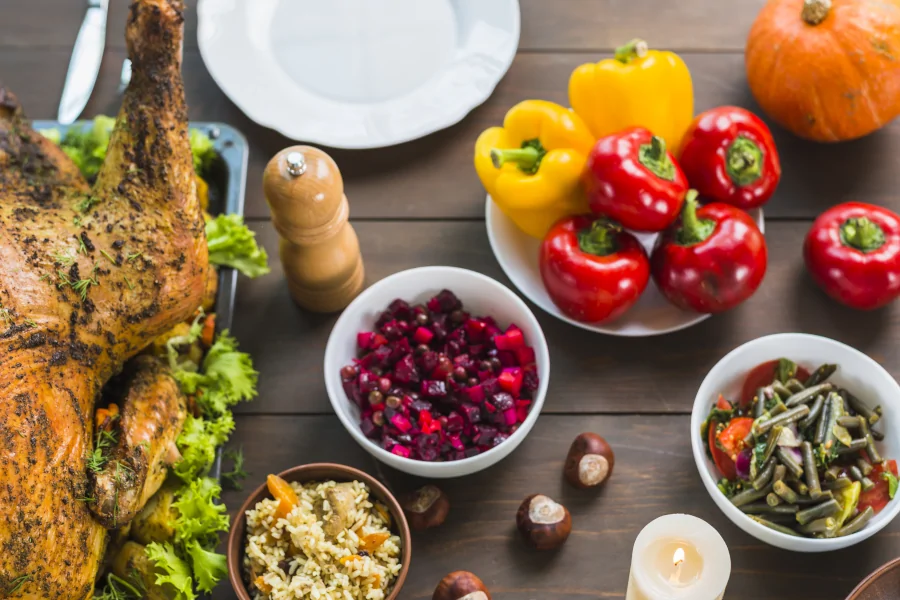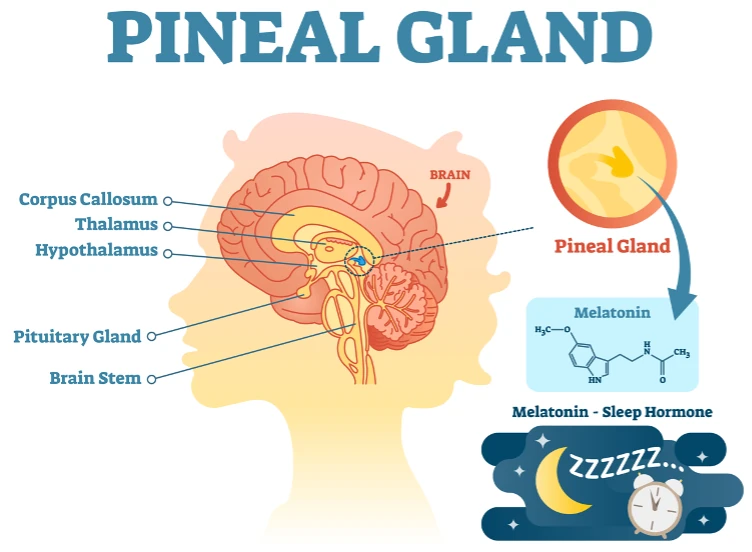Many individuals experience sleep difficulties, ranging from falling asleep to maintaining uninterrupted sleep or waking up tired. Getting 7 to 9 hours of continuous, high-quality night sleep is widely recommended for optimal health. Inadequate sleep can lead to reduced energy levels, mood fluctuations, impaired concentration, and even cause other health-related complications.
Sleep deprivation is a significant concern in the United Kingdom, particularly among younger individuals. According to data from NHS Digital, over one-third (34.0%) of children aged 7 to 16 experienced sleep problems on at least three occasions within a week.
While various factors contribute to sleep troubles, diet is often underestimated. The foods we eat play a vital role in either promoting or disrupting the quality of our sleep. Sleep hygiene can be enhanced by making simple adjustments to our dietary habits. This informative article explains practical solutions for individuals struggling with sleep issues or seeking to optimise their sleep for better health.
The food-sleep connection
Food and sleep have a significant connection, as the nutrients we consume are crucial in regulating our body’s natural sleep-wake cycle. Making wise dietary choices impacts our overall health and directly affects our ability to fall asleep quickly and enjoy high-quality, restorative sleep. Nutrients which play an essential role in facilitating high-quality sleep include:
Tryptophan: This essential amino acid is a precursor to serotonin and melatonin, the hormones that regulate our sleep-wake cycles. Consuming foods rich in tryptophan increases melatonin production. Higher melatonin levels induce a natural sense of sleepiness, making it easier to fall asleep and promoting better sleep quality throughout the night.
Magnesium: Maintaining adequate magnesium levels is vital for deep, restorative sleep. This mineral acts as a natural relaxant, helping activate the parasympathetic nervous system, which promotes a calm and relaxed state in the body and mind. Additionally, magnesium regulates melatonin, the sleep-promoting hormone, further enhancing its sleep-supportive properties.
Complex Carbohydrates: Consuming complex carbohydrates, such as those found in whole grains, legumes, and vegetables, causes an insulin spike. This spike allows more tryptophan to enter the brain, which can then be converted into serotonin and melatonin, facilitating the sleep-wake cycle.
Additionally, foods high in vitamin D, calcium, vitamin B complex, omega-3 fatty acids, and antioxidants can improve sleep by reducing inflammation, balancing hormones, and boosting serotonin production. Conversely, highly processed foods, refined carbs, caffeine, and alcohol can disrupt sleep cycles.
Foods that help you sleep
Different foods provide different nutrients that can help better sleep in various ways. Identifying the right combination of these sleep-promoting foods may require experimentation to find the optimal approach that aligns with individual needs and preferences. However, incorporating foods rich in tryptophan, magnesium, and complex carbohydrates into one’s diet can promote high-quality, restorative sleep and overall well-being.
Foods rich in tryptophan
Tryptophan is an amino acid that increases serotonin and melatonin production, hormones that regulate sleep-wake cycles. Foods naturally rich in tryptophan include:
- Poultry: Turkey, chicken, quail, duck
- Fish: Salmon, tuna, cod, halibut, trout, anchovies, sardines
- Dairy: Milk, yoghurt, cheese
- Eggs
- Nuts and seeds: Almonds, walnuts, pumpkin seeds, sesame seeds, cashews
- Legumes: Soybeans, tofu, tempeh, edamame, lentils, kidney beans, chickpeas
- Whole grains: Oats, whole wheat bread, brown rice, quinoa, amaranth
- Vegetables: Spinach, broccoli, asparagus, mushrooms, potatoes
- Fruits: Bananas, avocados, dates, figs, prunes, apricots
Consuming tryptophan-rich foods, especially a few hours before bedtime, can help promote melatonin release to induce sleepiness.
Magnesium-rich foods
Magnesium is a mineral that activates the parasympathetic nervous system, promoting relaxation and enabling deep, restorative sleep. It also plays a crucial role in regulating melatonin levels. Incorporating magnesium-rich foods into your diet can help you get the restful sleep your body needs. Good dietary sources of magnesium include:
- Leafy green vegetables, such as spinach, kale, and Swiss chard
- Nuts, like almonds, cashews, and peanuts
- Seeds such as pumpkin, chia, and flaxseeds
- Avocados
- Whole grains, including brown rice, quinoa, and oats
Complex carbohydrates
Complex carbohydrates digest slowly, providing a steady energy supply without causing blood sugar spikes that can disrupt sleep. They also trigger an insulin response that allows more tryptophan to enter the brain, facilitating the production of sleep-promoting hormones like serotonin and melatonin, which promotes high-quality sleep. Food rich in complex carbohydrates include:
- Whole grains, like oats, brown rice, and quinoa
- Sweet potatoes and squash
- Beans, lentils, and peas
- Whole-grain bread and pasta
Other natural remedies to help you sleep
While incorporating sleep-promoting foods into your diet is a great way to support better sleep, several other natural remedies and practices can enhance your overall sleep quality.
Light Snack Before Bed
Eating a small, light snack in the evening can help you fall asleep faster and sleep more soundly through the night. The key is prioritising foods that combine tryptophan and complex carbohydrates, as this pairing can promote melatonin production and sustained energy release.
Some great options include a banana with nut butter, whole-grain cereal with milk, or a few whole-grain crackers with a slice of turkey or cheese. However, avoid heavy meals close to bedtime, as they can disrupt sleep by making digestion more difficult.
Herbal Teas
Certain herbal teas provide a gentle, caffeine-free way to induce sleepiness and promote relaxation naturally. Teas made from passionflower, chamomile, valerian root, and lemon balm are particularly beneficial for calming the mind and body before bed. These herbs contain compounds that can help reduce anxiety, promote muscle relaxation, and support the production of sleep-inducing hormones like melatonin.
Sleep hygiene practices
Besides dietary considerations, implementing healthy sleep hygiene practices can significantly improve the quality of your sleep. These practices include:
- Avoiding screen time (TV, computers, phones) for at least an hour before bedtime, as the blue light emitted can disrupt your body’s natural sleep-wake cycle.
- Keeping your bedroom cool, dark, and quiet creates a helpful environment for restful sleep.
- Establishing a consistent sleep schedule, going to bed and waking up at the same time each day, even on weekends.
- Engaging in relaxing activities before bed, such as reading or practising gentle yoga or meditation.
Combining sleep-promoting foods with other natural remedies and healthy sleep hygiene practices can create a comprehensive approach to achieving high-quality, restful, restorative sleep.
Foods to avoid before bed
While incorporating sleep-promoting foods into your diet is essential, it’s equally important to be mindful of the foods that can disrupt your sleep quality. Certain dietary choices, especially those consumed close to bedtime, can make it difficult to fall asleep and stay asleep throughout the night. Avoiding or limiting the following foods can be helpful for high-quality, restful, restorative sleep.
Fatty Meals
Fatty meals can be a significant sleep disruptor. These meals are challenging for the body to digest, and consuming them close to bedtime can lead to indigestion, acid reflux, or general discomfort and heaviness. To promote better sleep, it’s best to eat lighter snacks or meals at least 2-3 hours before bedtime, allowing your body ample time to digest before you sleep.
Spicy and acidic foods
Spicy foods, such as those containing chilli peppers or garlic, and acidic foods like citrus fruits and tomatoes, can trigger heartburn and indigestion. The discomfort caused by acid reflux can make it challenging to fall asleep and stay asleep, leading to restless nights and poor sleep quality.
Sugary and refined foods
Sugary and refined foods, such as sweets, baked goods, sugar-sweetened beverages, and other foods high in added sugars, cause a spike in blood sugar levels, followed by an eventual drop. This fluctuation triggers the release of stress hormones that can disrupt sleep cycles. It’s best to avoid foods high in added sugars closer to bedtime to maintain steady energy levels that promote sound, uninterrupted sleep.
Caffeine and alcohol
For optimal sleep quality, it is advisable to limit your intake of caffeine and alcohol close to bedtime. Caffeine is a stimulant that promotes wakefulness and alertness, which can interfere with falling asleep. While alcohol may initially help you fall asleep, it can disrupt the quality of your sleep later in the night by preventing you from entering the restorative sleep stages. Consequently, despite getting hours of sleep, you may wake up feeling unrested and fatigued due to the interference with your natural sleep cycles.
Sleep and diet go hand-in-hand
Mindful food choices can help you control your sleep quality. By making simple yet strategic adjustments to your diet and lifestyle habits, you can maximise the hours of deep, refreshing, high-quality sleep. Eating sleep-promoting foods rich in tryptophan, magnesium, complex carbohydrates, and other vital nutrients can help regulate the body’s sleep-wake rhythms and promote a sense of calm and relaxation before bedtime.
At the same time, limiting foods that disrupt sleep is also essential. Heavy, spicy, and sugary meals, as well as caffeinated beverages and alcoholic drinks, can make it harder for your body to enter the deep, restorative stages of sleep. Moreover, combining a sleep-friendly diet with good habits like keeping your bedroom cool, dark and free of screens before bed significantly contributes to high-quality sleep.
Adequate, high-quality sleep is crucial for physical and mental well-being. By following the above dietary and lifestyle tips, you can improve your sleep and enjoy numerous benefits, such as a stronger immune system, better cognitive function, enhanced mood, increased productivity, and weight management.
However, if you continue to face sleep difficulties despite implementing these changes please consider trying other methods too. While environmental factors such as your diet may play a role in poor sleep, underlying health conditions or other factors may also affect it.
As a leading sleep physician and psychiatrist, we offer consultations for those with sleep deprivation and insomnia. Please contact us if you require further advice on how to fall asleep or are struggling for other reasons.










